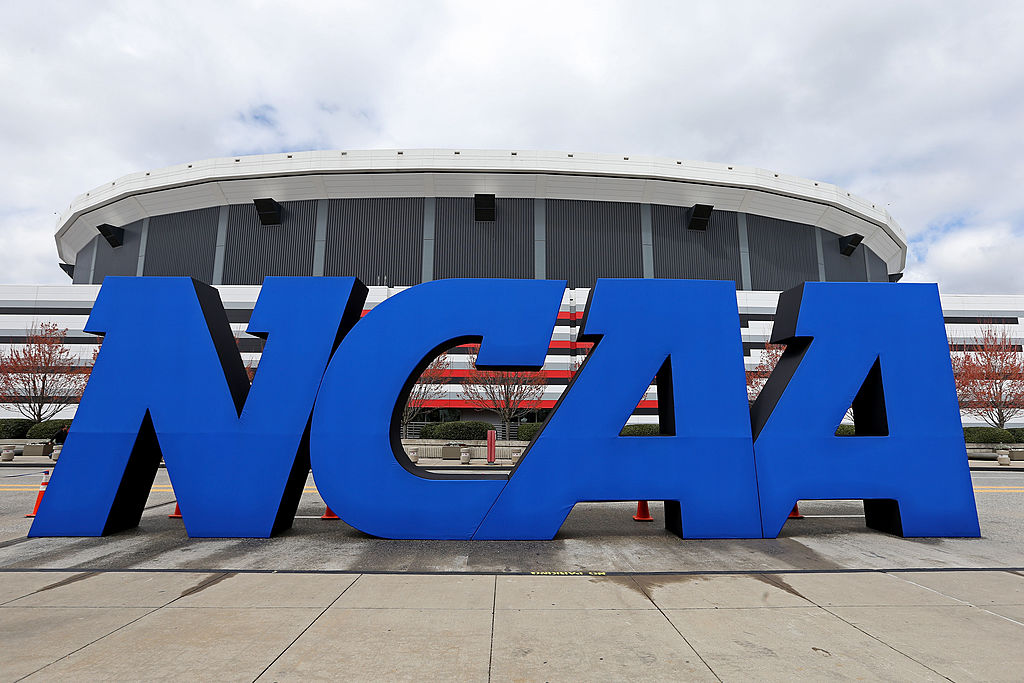We may not be allowed to attend college football games this fall.
Go ahead and buy your season tickets anyway. And don’t ask for a refund if you can’t use them. Consider it “paying it forward” for loyalty, and the good of the institution. For the good of ALL collegiate sports. Your alma mater and/or your favorite collegiate sports program needs your support. Now more than ever.
Here’s the deal.
Despite all the hand wringing about how the NCAA was rolling in money and they should be paying the players and blah blah blah, we’re now seeing the hard truth play out in real life. Following the cancellation of March Madness, the College World Series and all the spring sports for 2020, the NCAA member institutions – not all of them, but definitely most – are NOT swimming in cash. In fact, some of them may not be swimming at all next school year. Swimming is, after all, a non-revenue producing sport. And it’s the non-revenue sports that are facing an uncertain future – and possibly even extinction.
Consider this partial list of sports programs that are already casualties in the wake of COVID-19:
- The Men’s soccer program at the University of Cincinnati – dropped.
- The Men’s track and field program at Central Michigan – dropped.
- The Bowling Green AND Furman baseball programs – dropped.
- The Old Dominion’s wrestling program – dropped.
- Men’s cross country and golf, along with women’s tennis – all dropped at the University of Akron.
As of the last weekend in May, a total of 97 sports had been dropped. That includes 19 Division-I programs – all from the “Group of Five” conferences (15 men’s and four women’s). Don’t expect it to stop there, especially if the ticket buying public can’t or simply choose not to support their schools this fall.
It’s understandable if they choose not to. Families are hurting too. Football tickets aren’t a crucial expenditure. Going to games is an activity that can be sacrificed until things improve. You can stay home and watch almost all the games on your big screen TV anyway.
But…
Keep this in mind as well, especially if you’re a fan of your favorite school’s swimming, or volleyball, or soccer or baseball programs: When budget shortfalls show up on the books, it’s not the big sports of football and basketball that feel the pinch. It’s those smaller, non-revenue sports that bear the brunt of the cutbacks.
Nearly every major college sports program relies on the massive revenue that college football and basketball generate. That includes the conferences and schools that don’t even play football.
Yes, too many places pay their football and basketball coaches insane amounts of money. But those are the exceptions that prove the rule. The vast majority of collegiate sports programs operate on a tight budget. The money that’s brought in from the TV revenues and the playoff postseason may be astronomical, but it’s all needed when it gets spread out among 300+ institutions. And while the NCAA basketball tournament is an even bigger revenue generator, that revenue stream has already run dry in 2020.
According to MarketWatch.com, “The loss of the March Madness tournament will cost the NCAA about $375 million, the NCAA says. The NCAA was originally scheduled to distribute a total of $600 million to over 1,200 schools across all divisions before the cancellations, but now will distribute $225 million.
Ouch.
So, the financial struggles are easy to trace and explain. The solution is not nearly as clear.
Which is where you, as a college football fan, come in.
That TV revenue that emboldens the Power Five conferences? It isn’t that great for the Group of Five conferences. The Mountain West conference recently signed a new six-year TV deal with FOX and CBS Sports. It’s worth a total of $270 million. If you do simple math, that’s worth $45 mil per season, divided by 12 schools comes out to $3.75 mil per each school per year. That’s nice, but it doesn’t pay for all the non-revenue sports.
Unlike the Big 10, SEC, Pac 12, Big 12 and ACC, the G5 schools don’t have their own TV networks. (The Big 10 and SEC, for example, pay out more than $40 mil per year per member school from TV revenue.) Along with the money they get from the NCAA (and that took that $300,000 hit per school this spring) obviously the non-P5 schools rely much more heavily on ticket revenue. If fans don’t buy tickets, then that money doesn’t come in, and some additional student-athletes in other sports are likely to lose their chance to compete.

None of us can do a ton to remedy the COVID-19 financial impact. But what we CAN do is renew those two season tickets we’ve had for a few years, or even become a first-time buyer. Of course, you may not get to use them, and probably can’t re-sell them. But that doesn’t mean the money won’t be going to a worthy cause.
Listen to Mark Knudson on Monday’s at 12:30 with Brady Hull on AM 1310 KFKA and on Saturday mornings on “Klahr and Kompany” on AM 1600 ESPN Denver.
More from The Woody Paige Sports Network:
- The Designated Hitter is here to stay – in the NL and across MLB
- Woody Paige: That time I played blackjack with Michael Jordan in Monte Carlo
- Woody Paige: The Chargers need to move back to San Diego (VIDEO)
- Before asking players help, MLB owners can fix things by sharing amongst themselves
- Betting odds to be the New England Patriots Week 1 QB in 2020
- Dave Portnoy has Roger Goodell between a $250k donation and a hard place



















